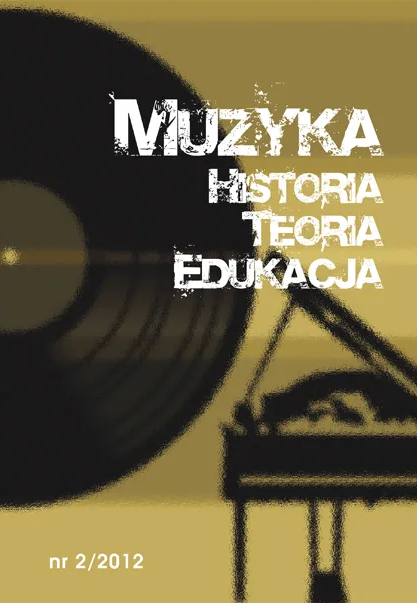kazimierz Serocki – creative transformations and their contexts
DOI:
https://doi.org/10.34767/MHTE.2012.02.01Abstract
Kazimierz Serocki is one of the leading figures of Polish music in the 20th century. An outstanding and interesting artist, an activist and organizer of music life. Thirty years after his death his accomplishments are clearly seen in historical context. This historical recognition should be seen in two contexts: personal and general, covering social, political, historical and cultural transformations. First, the article presents the ups and downs of composer’s life -school and later university years, scholarship in Paris, and the very rich and diverse activities of Serocki when he returned to the country – among others a Group of 49 and his active role in organizing the Warsaw Autumn Festival. Historical events create context for Serocki’s works which evolve accordingly to changes in polish music in second half of XX century. We can observe movements such as: folk, dodekafonic, serialism of material, aleatorism and open form experiments, even with electronic music. The style of Serocki’s music is versatile, rich and diverse.
References
Baculewski Krzysztof, Współczesność, cz. I, Sutkowski Edition, Warszawa 1996.
Gwizdalanka Danuta, Meyer Krzysztof, Lutosławski. Droga do dojrzałości, PWM S.A., Kraków 2003.
Lindstedt Iwona, Kazimierz Serocki, [w:] Marek Podhajski (red.), Kompozytorzy polscy 1918-2000, t. II: Biogramy, AM, Gdańsk-Warszawa 2005.
Podhajski Marek, Periodyzacja, [w:] Kompozytorzy polscy 1918-2000, t. I: Eseje, AM, Gdańsk-Warszawa 2005.
Schaeffer Bogusław, Kompozytorzy XX wieku. Od Messiaena do Capriolego, t. II, Wydawnictwo Literackie, Kraków 1990.

